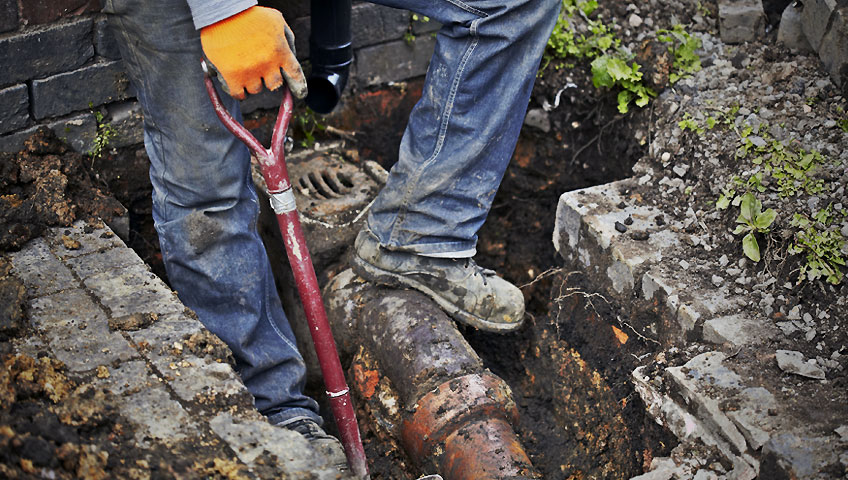Dallas-Fort Worth, Texas, differs from other parts of the country with its combination of clay soils and seasonal variations. Changes to the soil’s moisture content cause expansion and contraction, which can lead to road damage and foundation issues.
North Texas has some of the highest soil plasticity in the world. Within any given season, it’s not unusual to experience long stretches of drought followed by torrential rains and flooding.
Align Foundation Repair offers free inspections and estimates for property owners and real estate agents concerned about foundation issues. We are skilled at a full range of DFW foundation repair services, including drainage solutions, concrete lifting, and more.
Common Signs of DFW Foundation Problems
Signs of structural damage to a house can build over time or occur overnight. Warning signs to look for include:
- Bowing walls
- Cabinets that swing open by themselves
- Divides widening between the floor and door
- Drywall cracks
- Exterior brick cracks and crumbles
- Nails protruding from the walls
- Plumbing leaks
- Sidewalk and patio concrete cracks
- Sticky doors and windows
Root Causes of Foundation Issues in Dallas Fort Worth
The three primary underlying causes of foundation issues in Dallas-Fort Worth include:
Poor soil preparation
Disturbed, graded soil becomes loose and porous. Without compacting the soil before pouring the concrete, the foundation will slip and slide — or even sink — as the ground fluctuates between wet and dry.
Many newer areas that have been heavily filled could take seven years for the ground to fully settle, so it is not uncommon for a new neighborhood to have foundation trouble.
Pouring concrete over soggy wet trenches is yet another way a foundation can be poorly prepared.
Soil type and climate
To some degree, foundation problems are unavoidable in most of Texas. The entire DFW area is built upon deep clay. When subjected to swings of temperature and rainwater volume, clay soil expands and contracts. Our region is characterized by a wide annual temperature range, and precipitation can vary from less than 20 inches to more than 50 inches.
Poor drainage
Many parts of DFW also happen to sit in a flood plain region. Excessive moisture causes a negative effect on all DFW home foundation types, whether you have pier and beam or slab style construction.
Sometimes a “flood” can be caused by a plumbing leak if the ground has shifted enough to cause a broken pipe somewhere along the line. Large tree roots, bushes too close to the house, and garden runoff can cause moisture to accumulate too close to the foundation.
What to Look For When Buying a DFW Home
When you’re buying a home in the DFW region, look for:
- The aforementioned signs of DFW foundation problems, particularly cracks and sticky doors/windows.
- Crispy, fried landscaping and shrubs that have not been properly maintained.
- Trees too close to the house and untamed shrubs like Red Tips grown up to the eaves of the house.
- Homes in more established neighborhoods that have been around at least 7-10 years.
- A property that comes with a lifetime transferable warranty on foundation repair.
You can also call a foundation contractor in Dallas Fort Worth at Align Foundation Repair for a free estimate to get a professional opinion on the stability of your property. We can provide you with a better understanding of the soil underneath the property, how likely it is to sustain damage, and what the cost of repairs might be.
Preventative Maintenance Steps for Homes in Dallas-Fort Worth
Ideally, a structural engineer will be involved in a building construction project from the ground up. The architect should oversee and verify that all instructions were followed before the concrete was poured.
After purchasing a home, property owners can mitigate future foundation settling by installing:
- A proper drainage system like a French or surface drain.
- Gutter downspouts (and keeping them cleaned!)
- Soaker hoses and sprinklers around the foundation to keep moisture levels stable in dry spells.
Maintaining vegetation – like trimming trees and keeping shrubbery away from the house – is also important.
If you are worried about a foundation in DFW, call the family-owned and operated Align Foundation Repair in Fort Worth and Dallas. Since 2010, our A+ rated, BBB-accredited, fully insured business has provided expertise to local residents.
Call for a free inspection if you live in one of our DFW foundation repair service areas. All work comes with a fully transferrable warranty that gives you peace of mind and increased property value.


